DIY Landscape Design: The Ultimate Guide for Stunning Outdoor Spaces
Are you ready to transform your outdoor space into a stunning landscape that reflects your style and personality? Look no further than this ultimate guide on DIY landscape design.
With step-by-step instructions and expert tips, you’ll learn how to set goals, gather inspiration, plan layouts, select plants, and create pathways for easy accessibility.
Whether you’re a gardening enthusiast or simply looking to enhance your curb appeal, this guide will help you turn your backyard into a beautiful oasis that you can proudly call your own.
Best Interior & Exterior AI Design Tool – Redesign a Home from Top to Bottom
Key Takeaways
- Define the purpose of your outdoor space and consider the desired aesthetic and style.
- Address drainage issues by installing French drains, grading the area, and creating rain gardens.
- Select and care for plants by analyzing their characteristics and care requirements.
- Implement front yard landscaping ideas such as building retaining walls, incorporating pavers, planting colorful flowers and shrubs, and installing outdoor lights.
Setting Goals and Gathering Inspiration
You should start by setting clear goals and gathering inspiration from different sources to create a stunning DIY landscape design.
As DIY landscape design enthusiasts, it’s important to have a vision in mind and define the purpose of your outdoor space. Are you looking to create a peaceful retreat for relaxation, a vibrant area for entertaining, or enhance the curb appeal of your home? Once you’ve determined the purpose, consider the desired aesthetic and style that resonates with you.
Whether you prefer a modern, rustic, or tropical look, gathering inspiration from various sources like magazines, websites, and garden tours can help you refine your ideas. Take the time to collect images, create mood boards, and gather ideas that will guide and inspire your design process.
Studying the Site and Addressing Drainage Issues
Take a thorough walk around your site to assess the drainage issues and determine the extent of the problem. Observe the sunlight exposure and shade patterns at different times of the day.
It’s important to understand the characteristics and conditions of your site, including the soil type and microclimates. Identifying any drainage issues is crucial for a successful DIY landscape design project.
To emphasize the importance of addressing drainage problems, consider the following table:
| Drainage Issue | Solution |
|---|---|
| Waterlogging | Install French drains |
| Poor water flow | Grade the area |
| Excessive runoff | Create rain gardens |
DIY Landscape Design: Planning and Creating a Layout
Make sure to carefully consider the layout of your DIY landscape design to ensure a well-organized and visually pleasing outdoor space.
When planning and creating a layout for your DIY landscaping design, it’s important to start by measuring the area to be landscaped and creating an accurate layout plan. Use hoses or rope to visualize boundaries and placements before committing to permanent features.
Consider incorporating pathways and hedges into your plan to create flow and define different areas within your landscape.
To ensure a successful design, it’s crucial to develop a clear and detailed plan for implementing your design, including materials and budget considerations.
DIY Landscape Design: Plants Selection
Analyze the characteristics and care requirements of the available plant options before making your selection for the DIY landscape design. It is essential to consider the specific needs of the plants to ensure their success and longevity in your garden.
To help you in this process, here is a table comparing five popular plant options for a DIY landscape design:
| Plant Option | Characteristics | Care Requirements |
|---|---|---|
| Roses | Beautiful blooms in various colors | Regular pruning and watering |
| Hostas | Lush foliage with different textures | Shade or partial shade, moist soil |
| Lavender | Fragrant flowers and aromatic leaves | Well-drained soil, full sun |
| Boxwoods | Evergreen shrubs with dense foliage | Regular watering and pruning |
| Daylilies | Vibrant flowers in a range of colors | Full sun to part shade, well-drained soil |
DIY Landscape Design: Plants Placement
Consider incorporating a variety of plants into your landscape design, using both annuals and perennials, to add visual interest and create a cohesive and inviting outdoor space. By carefully selecting and placing your plants, you can create a garden that isn’t only aesthetically pleasing but also functional and sustainable.
Here are some tips to help you with your plant selection and placement:
- Research and plan in advance to ensure you choose plants that are suitable for your climate and soil conditions.
- Consider the height, color, and blooming seasons of the plants to create a harmonious and balanced design.
- Use a landscape sketch and color-coded key to organize your planting plan and make implementation easier.
- Seek recommendations from experts or experienced gardeners to help narrow down your choices and avoid feeling overwhelmed.
- Take into account the maintenance requirements of each plant to ensure they can be properly cared for.
Designing the Landscape
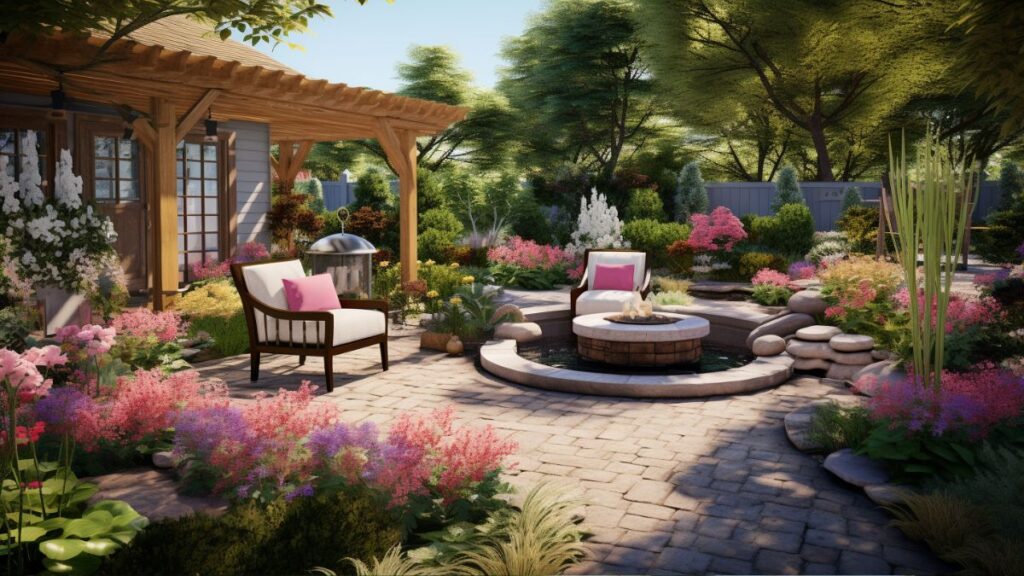
To create a stunning landscape design, consider incorporating a variety of plants, hardscaping elements, and outdoor accessories. By carefully designing your landscape, you can transform your yard into a beautiful and functional space that you can enjoy year-round.
Here are five key elements to consider when designing your landscape:
- Use grid paper or computer programs to visualize your design and ensure everything fits harmoniously.
- Incorporate hardscaping elements like patios and pathways to add structure and define different areas of your yard.
- Explore different materials, textures, and colors for your hardscaping elements to create visual interest and complement your overall design.
- Strike a balance between creativity and practicality, ensuring that your design is both visually appealing and functional for your everyday needs.
- Consider adding outdoor accessories such as lighting, furniture, and decor to enhance the ambiance and create a welcoming space.
Planning and Organization
You should start by creating a detailed plan and then organize your tasks accordingly to ensure a smooth and efficient landscape design process.
Begin by segmenting your landscape into manageable portions, such as the yard, flowerbeds, and garden areas. This will help you establish a sense of order and visual interest in your design.
Once you have divided your landscape, focus on maintaining control of each area and cultivate according to its specific needs, ensuring proper growth and health.
Additionally, don’t forget to establish and maintain borders for defined spaces. Utilize edging techniques to enhance the overall appearance and aesthetics of your landscape.
Pathways and Accessibility
Enhancing the functionality and aesthetics of your landscape design involves incorporating pathways that improve accessibility and direct visitors through the space.
Paths and walkways not only provide a practical purpose but also contribute to the overall beauty of your outdoor environment. When designing your landscape, it’s crucial to consider the placement and design of pathways, ensuring they seamlessly blend with the rest of your design elements.
By carefully selecting materials, such as natural stone or pavers, you can create a visually appealing pathway that complements the surrounding landscape. Additionally, consider the width and layout of the paths to accommodate different users, including wheelchairs or strollers.
Incorporating lighting along the pathways can also enhance safety and create a welcoming atmosphere.
DIY Landscaping Design Ideas
If you’re looking to add some curb appeal to your home, there are plenty of DIY landscaping ideas to consider. One option is to revamp your front yard with creative designs and plantings that will catch the eye of passersby.
Another idea is to create a cozy outdoor gathering space by adding a fire pit or giving your backyard patio a makeover. For a modern touch, you can also update your front entrance with tiled patios and sleek house numbers.
Front Yard Landscaping Ideas
Are you looking for some fresh front yard landscaping ideas to transform your outdoor space? Improving the curb appeal of your home can be easily achieved through basic landscaping techniques. Here are some ideas to get you started:
- Build a retaining wall using pavers to separate plants and trees from the yard. This not only adds structure to your front yard but also helps to keep everything organized and visually appealing.
- Incorporate pavers to add definition to your front yard. Use them to create pathways or borders around flower beds, giving your space a polished and finished look.
- Consider planting a variety of colorful flowers and shrubs to enhance the overall appearance of your home. This will create a vibrant and inviting atmosphere for both you and your guests.
- Don’t forget about lighting! Install outdoor lights along pathways and near focal points to highlight your landscaping and make your front yard feel warm and welcoming, even at night.
- Finally, don’t be afraid to get creative with your front yard landscaping. Add personal touches, such as decorative statues or unique planters, to make your outdoor space truly feel like your own.
Fire Pit
You can easily create a cozy fire pit in just one afternoon to enhance your outdoor living space. Adding a fire pit to your yard or patio not only provides warmth and ambiance, but also creates a welcoming atmosphere for gatherings with friends and family.
To achieve a polished look, consider surrounding the fire ring with pavers. This won’t only add a touch of elegance, but also provide a safe and stable foundation for your fire pit.
Imagine roasting marshmallows and sharing stories around the fire, creating memories that will last a lifetime.
Backyard Patio Makeover
Transform your backyard patio into a stunning oasis by incorporating DIY landscaping ideas such as adding potted plants and installing string lights for a cozy atmosphere. Creating a beautiful outdoor space doesn’t have to be difficult or expensive. With a little creativity and some DIY know-how, you can transform your patio into a place where you can relax and entertain.
Here are five ideas to get you started:
- Create a focal point with a water feature, such as a small fountain or a DIY pond.
- Add a pergola or a trellis to provide shade and privacy.
- Incorporate a fire pit or a chiminea for warmth and ambiance.
- Install a DIY outdoor kitchen or a grill area for cooking and dining al fresco.
- Use decorative elements like outdoor rugs, cushions, and curtains to add color and personality to your patio.
Tiled Front Patio
Make your front entrance more visually appealing by tiling your front patio with a stunning and eye-catching design. A tiled front patio not only enhances the overall aesthetic of your home but also creates a warm and inviting atmosphere.
With a wide range of tile options available, you can choose a design that suits your personal style and complements the exterior of your house. By incorporating various planters and seating options, you can further highlight the area and create a sense of belonging.
Additionally, consider adding a play area or additional seating space to make the front patio a versatile and functional space. With the right design and attention to detail, a tiled front patio can become a focal point of your home, welcoming both residents and guests alike.
Modern House Numbers
Spruce up your home’s exterior with modern house numbers that add a touch of contemporary style to your front entrance. Updating your house numbers is a quick and impactful DIY project that can instantly enhance the curb appeal of your home.
Here are five reasons why modern house numbers are a must-have addition:
- Impress visitors: Make a unique and stylish first impression with personalized house numbers that showcase your creativity and design skills.
- Easy and cost-effective: This DIY project requires minimal effort and cost, but the results are impressive and long-lasting.
- Enhance curb appeal: Modern house numbers can add character and charm to your home, making it stand out in the neighborhood.
- Reflect your style: Choose from a variety of modern designs, fonts, and materials to find the perfect match for your home’s aesthetic.
- Increase safety and accessibility: Clear and visible house numbers make it easier for emergency services and guests to locate your home.
Upgrade your home’s exterior with modern house numbers and create a sense of belonging in your neighborhood.
Flower Bed Edging
To achieve a professional-looking garden, try using a simple garden tool and create clean separation between your plant beds and the yard. Enhancing the overall appearance of your garden can be as simple as paying attention to small details like edging.
By creating well-defined edges for your flower beds, you can easily achieve a polished and organized look in your yard. Edging not only adds visual appeal, but it also helps to maintain the shape of your flower beds and prevents grass and weeds from encroaching onto your plants.
Take a look at the table below for some popular options for flower bed edging materials:
| Material | Pros | Cons |
|---|---|---|
| Brick | Durable, classic look | Can be time-consuming to install |
| Stone | Natural, versatile | May be more expensive |
| Metal | Sleek, modern design | Can rust over time |
| Plastic | Affordable, easy to install | May not be as durable |
| Wood | Natural, customizable | Requires regular maintenance |
No matter which material you choose, implementing flower bed edging will give your garden that professional touch. So grab your garden tool and get started on creating clean and defined edges for your plant beds today!
Modern Pergola
You can enhance your outdoor living space by incorporating a modern pergola design, providing a stylish and functional addition to your backyard. A modern pergola offers numerous benefits, such as:
- Shade: Enjoy the outdoors while still being protected from the sun’s harsh rays.
- Outdoor seating and dining area: Create a comfortable and inviting space for relaxation and entertainment.
- Aesthetic appeal: Enhance the visual appeal of your yard with a sleek and contemporary pergola design.
- Value addition: Increase the value of your home with this functional and visually appealing DIY project.
- Customization options: Personalize your pergola to suit your style and preferences, whether it’s adding decorative elements or choosing a specific color scheme.
With a modern pergola, you’ll have a versatile and attractive space to enjoy outdoor activities, entertain guests, or simply unwind after a long day.
Pallet Patio
Create a cozy outdoor oasis with a pallet patio, using recycled materials for a sustainable and budget-friendly DIY project. Pallets are an excellent choice for building stylish and affordable patio furniture. With their versatility and availability, you can easily transform these humble wooden platforms into a cozy and inviting outdoor seating area.
This DIY project is perfect for renters as it doesn’t require permanent changes to the patio, allowing you to create a personalized outdoor space without upsetting your landlord. By adding a touch of modern design to your outdoor area with pallet furniture, you can enjoy the satisfaction of creating your own unique patio furniture while also contributing to a more sustainable lifestyle.
Deck Skirting
Improve the appearance of your deck by adding deck skirting, which can hide the unsightly underside of your deck and enhance the overall look of your home. Deck skirting is a simple yet effective DIY project that can transform your outdoor space.
Here are five reasons why you should consider adding deck skirting:
- Enhanced Aesthetics: Deck skirting creates a finished look by covering up the exposed structural elements of your deck.
- Improved Privacy: By enclosing the space underneath your deck, deck skirting provides a sense of privacy, making your outdoor area more enjoyable.
- Added Storage: Deck skirting can also provide additional storage space for outdoor equipment, tools, or gardening supplies.
- Protection from Pests: By sealing off the underside of your deck, skirting helps prevent pests from nesting in that area.
- Opportunity for Design: Deck skirting allows you to customize the look of your outdoor space, adding a touch of style and personality to your home.
With these benefits in mind, deck skirting is a worthwhile addition to any deck project, offering both functionality and aesthetics.
Outdoor Lounging Spaces
Transform your backyard into a cozy retreat with inviting outdoor lounging spaces. By creating designated areas for relaxation, you can enhance the functionality and comfort of your outdoor living space.
Incorporate large plants and trees to provide shade and privacy, allowing you to enjoy leisure time without disturbances. Designing a tiled patio area can tie the lounging spaces together, creating a cohesive and visually appealing outdoor retreat.
Consider adding comfortable seating options such as lounge chairs, hammocks, or a cozy outdoor sofa, where you can unwind and reconnect with nature. Don’t forget to add some decorative elements like outdoor rugs, cushions, and lighting to create an inviting atmosphere.
With these simple yet effective tips, you can create a backyard oasis that will make you feel a sense of belonging and provide a space to relax and recharge.
String Light Posts
Enhance the ambiance of your outdoor space with string light posts that create a warm and inviting atmosphere. These DIY projects aren’t only easy to install, but they also add a touch of whimsy and charm to your yard.
Here are five reasons why string light posts are a must-have for your outdoor area:
- Create a magical atmosphere: The enchanting glow of string lights instantly transforms your yard into a magical space.
- Perfect for evening gatherings: Whether you’re hosting a dinner party or simply enjoying a cozy night outside, string light posts provide the perfect lighting for any outdoor event.
- Easy to install: With just a few simple steps, you can have your string light posts up and ready to go.
- Versatile design: String light posts can be customized to fit any style or theme, making them a versatile addition to your outdoor space.
- Enjoy a cozy and inviting ambiance: The soft and warm glow of string lights creates a cozy and inviting atmosphere that will make you feel right at home in your outdoor space.
Rocky Plant Bed
Create a unique and eye-catching focal point in your outdoor space with a rocky plant bed that adds texture and dimension to your landscape. By incorporating white pebbles and rocks to cover the corner of your porch, you can achieve a modern and distinctive look for your patio.
This DIY landscaping idea allows you to showcase your creativity and create a personalized outdoor space that reflects your style. Not only does a rocky plant bed bring landscaping right up to your porch, but it also provides a visually appealing element to your overall design.
By carefully selecting and arranging plants, you can create an interesting and visually appealing focal point that will enhance the beauty of your outdoor space.
Easy Outdoor Furniture
You can easily build a comfortable and stylish seating area for your patio using affordable materials and simple construction techniques. With a bit of DIY know-how and some creativity, you can transform your outdoor space into a cozy oasis.
Here are some tips to get you started:
- Choose durable materials: Opt for weather-resistant materials like cedar or teak for long-lasting furniture.
- Measure your space: Take accurate measurements of your patio to ensure your furniture fits perfectly.
- Add cushions and pillows: Enhance comfort and style with colorful cushions and pillows that reflect your personal taste.
- Incorporate storage: Build furniture with hidden storage compartments to keep your outdoor essentials organized.
- Consider versatility: Choose furniture pieces that can be easily rearranged to accommodate different seating arrangements.
By following these simple steps, you can create a welcoming and inviting outdoor seating area that you can enjoy for years to come.
Implementing the Design
Start by planting colorful flowers in your designated garden area to begin implementing the design. Choosing a variety of flowers will add depth and visual interest to your landscape. Consider the color scheme and ensure that the flowers complement each other.
Next, focus on the arrangement of plants. Group taller plants at the back and shorter ones at the front, creating a layered effect. This will add dimension and create a more visually appealing space.
Don’t forget to add pathways or stepping stones to guide visitors through your garden. These can be made from various materials such as gravel, wood, or stone. Lastly, consider adding some decorative elements like statues, birdbaths, or trellises to enhance the overall aesthetic.
Sharing and Learning
During your landscaping journey, engage with others in the community and exchange ideas, seeking input and feedback for continuous improvement. Sharing and learning from others can greatly enhance your DIY landscaping experience.
Here are some ways you can actively participate and benefit from the community:
- Share your DIY landscaping plans and experiences to inspire and educate others.
- Showcase the transformation of your yard after implementing a design, and let others know about the impact it has had.
- Share tips and lessons learned from the process to help others avoid common pitfalls.
- Stay open to learning and adapting throughout the landscaping journey, embracing new ideas and techniques.
- Seek input and feedback from the community to continuously improve your landscaping skills.
Best Interior & Exterior AI Design Tool – Redesign a Home from Top to Bottom
Frequently Asked Questions
How Do I Choose the Right Type of Soil for My Landscape Design?
To choose the right type of soil for your landscape design, consider the specific needs of your plants. Factors like drainage, nutrient content, and pH levels should be taken into account. Consulting with a professional can also provide valuable guidance.
What Are Some Common Mistakes to Avoid When Planning and Creating a Layout for My Landscape?
When planning and creating a landscape layout, it’s important to avoid common mistakes. Don’t forget to consider the size and scale, balance and symmetry, and the overall functionality of your design.
Are There Any Specific Plants That Are More Resistant to Pests and Diseases?
There are indeed plants that are more resistant to pests and diseases. Some options for you to consider are marigolds, lavender, and rosemary. These plants can add beauty to your landscape while also providing natural pest control.
How Can I Create a Visually Appealing Pathway That Also Provides Easy Accessibility?
To create a visually appealing pathway that provides easy accessibility, consider using materials like gravel or flagstone. Choose a design that complements your overall landscape and incorporate lighting for added safety and aesthetics.
You can find reliable resources and communities to learn and share your DIY landscape design experiences just like a treasure hunter finds hidden gems. Check out online forums, social media groups, and local gardening clubs for valuable insights and connections.
Conclusion
Embarking on a DIY landscape design journey can be both fulfilling and rewarding. With the right knowledge, inspiration, and planning, you can transform your outdoor space into a picturesque haven.
So grab your gardening gloves and let your creativity bloom! Remember, Rome wasn’t built in a day, so take your time and enjoy the process. Happy landscaping!
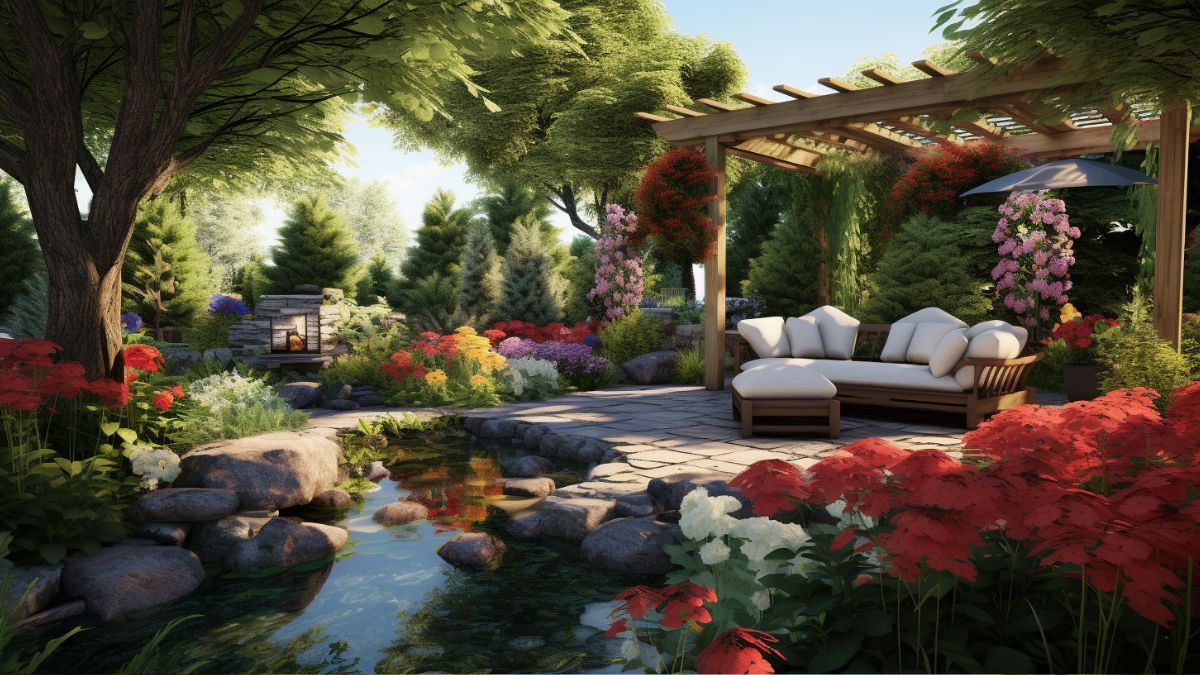


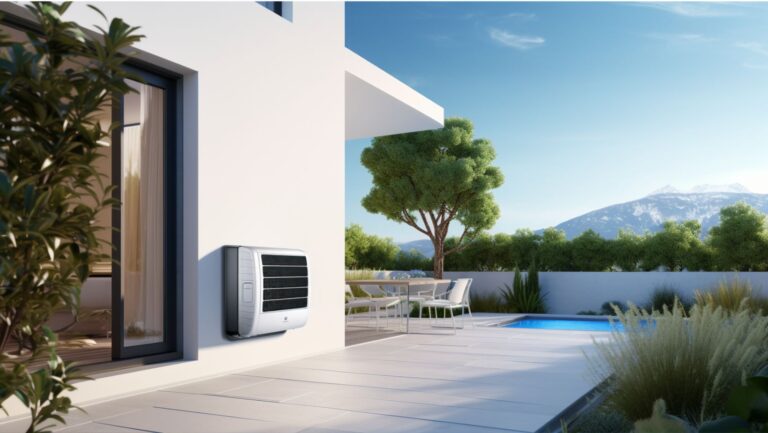

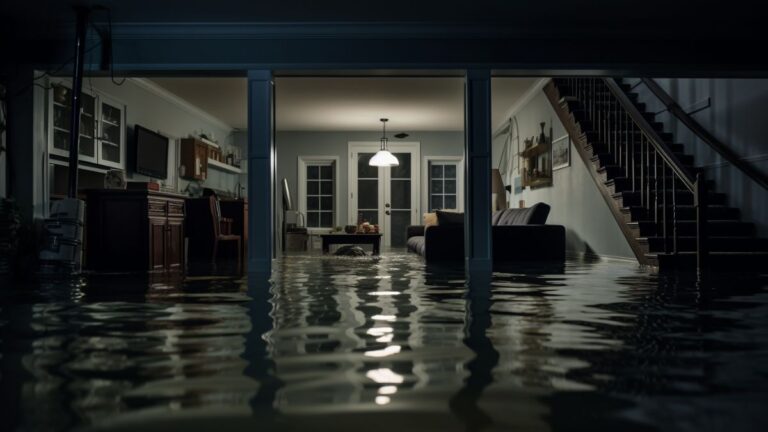
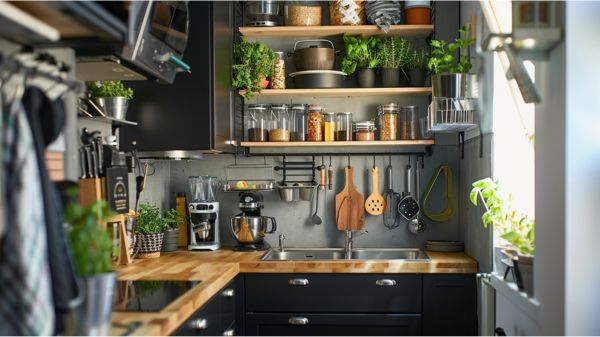
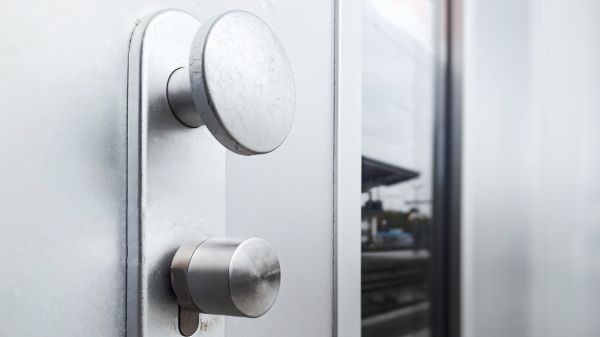
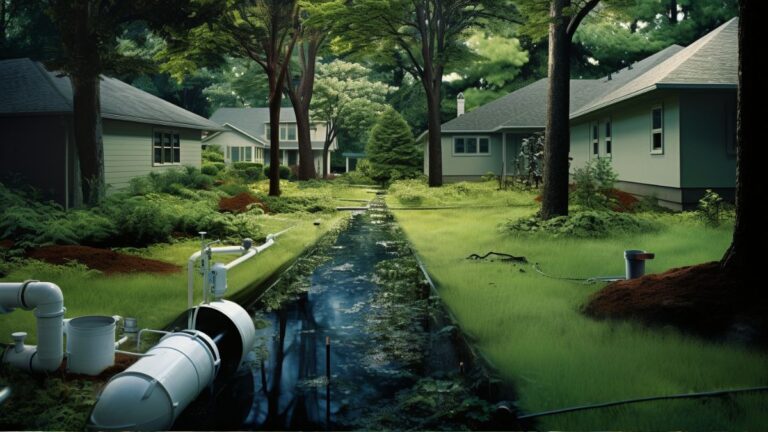
One Comment
Comments are closed.